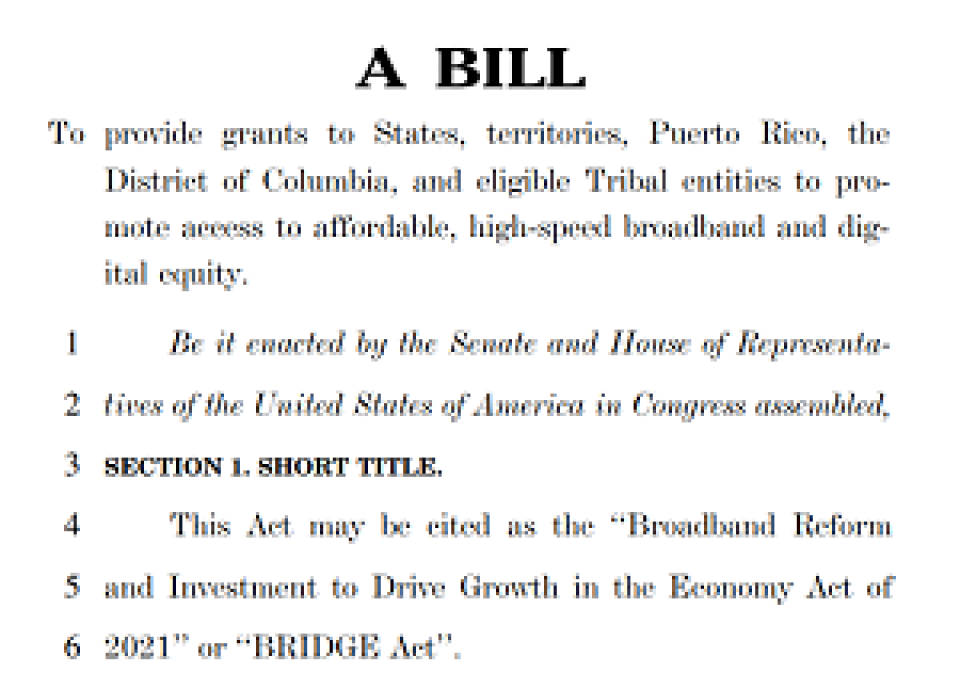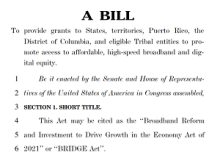
Fast, affordable Internet access for all.

Congress and the White House are currently managing a handful of different infrastructure proposals which are coming down the pipeline fast. In terms of major legislation, there’s President Biden’s revised $65 billion in funding as part of the American Jobs Plan, the Bridge Act, which would see $40 billion dispensed in state block grants aimed at unserved and poverty-stricken parts of the country, and the LIFT Act, which comes from the 32 Democrats on the House Committee on Energy and Commerce and would allocate $80 billion for infrastructure and another $30 billion for next-generation 911 services and digital inclusion efforts.
It remains uncertain where we will ultimately land on the above, but a few things are clear: whatever plan we as a country adopt, this is a once-in-a-generation endeavor to upgrade and expand our broadband infrastructure in the name of future-proof, affordable, and universal service. Whatever framework is agreed upon will drive how and where we invest, and those are critical considerations to make.

It’s time for you to reach out to your city, state, and congressional leaders and stress that all of the above can only be achieved when communities are allowed to play an active role in the process. Local challenges require local solutions, especially when it comes to broadband infrastructure. The current marketplace is fundamentally broken, with more than 80 million Americans stuck with just one Internet Service Provider for their home connections: the majority of whom are national monopolies that have spent far more time and money during the last twenty year to protecting their territories so they can continue to extract profits from communities and send them to shareholders thousands of miles away.
Above all else, this means that cities and cooperatives – as trusted, accountable entities which have been delivering basic services like electricity, water, and gas for over a hundred years – should have unfettered access to the full measure of funding allocated. It also means that Congress should take action and overturn the barriers that 17 states still perpetuate, which preempt the ability of local governments to meet the needs of their residents by building Internet infrastructure.
Communities are the ones best-positioned to decide how to bridge the broadband gaps which divide us today and prevent tens of millions of Americans – our classmates and students, family members, neighbors, coworkers, and friends – from participating in the benefits of equitable Internet access. This is not about what they ultimately choose regarding the solution to their broadband problems, but whether they are allowed to be a substantial part of the discussion.
Header image by Flickr user Dave Sutherland Attribution-NonCommercial-ShareAlike 2.0 Generic (CC BY-NC-SA 2.0)

